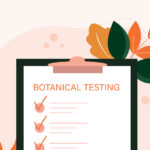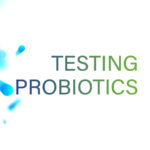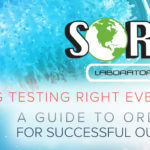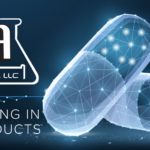Probiotic testing for potency to determine colony forming units (cfu/g ) is a complex process. This month’s video features the steps involved in testing the high count bacteria in probiotics. This video begins with a sample that is ready to plate. The preliminary stages in the sample preparation allow the freeze-dried bacteria to be re-hydrated and the spore forming bacteria to be heat-shocked for optimal growth on the agar plate. It’s important to know that each strain being requested to test for cfu/g count has specific method preparation instructions that are followed before the sample is ready for plating. Sample Request Form.
If the probiotics to be tested are single-strain, raw materials, then the ingredient vendor should be able to supply the correct test method. If the sample is a blend of strains or is a combination of several manufacturers’ materials, then choosing the method can be more complicated, but not impossible. An experienced lab will work to select a single method that allows several stains to grow out on the same media, although blended probiotics may take longer to complete due to the extra testing needed to determine the ideal method. Once the method has been determined, and testing is complete, the results of total cfu/g count can be used to substantiate the product label claims.
After determining the most appropriate method, calculating the dilutions to plate is the next step. If the product specification is 10 billion cfu/g, then the 108 and 109 serial dilutions would be plated to incubate. Ideally, it’s best to choose the dilutions that will allow for counting 25-250 colonies per plate when calculating results. Plating is performed in triplicate to show repeatability and ensure consistent growth of the sample. If no growth is seen on these plates, then it would need to be re-plated or be reported at <100 million cfu/g. If re-plating is necessary, then the process is started over and the next two, or more, serial dilutions are plated. The method generally lists the incubation time, but most probiotics incubate for 72 hours. It is evident that sub-potent products or material without proper specifications often take longer and are costlier to test.
Choosing the correct test method and having accurate specifications is the key to having successful potency determinations for probiotic products. Specialty testing requires an experienced lab; with SORA Labs you can be confident that the results we provide your company have the best interest of delivering efficacious products in to the marketplace for you to be proud of.










